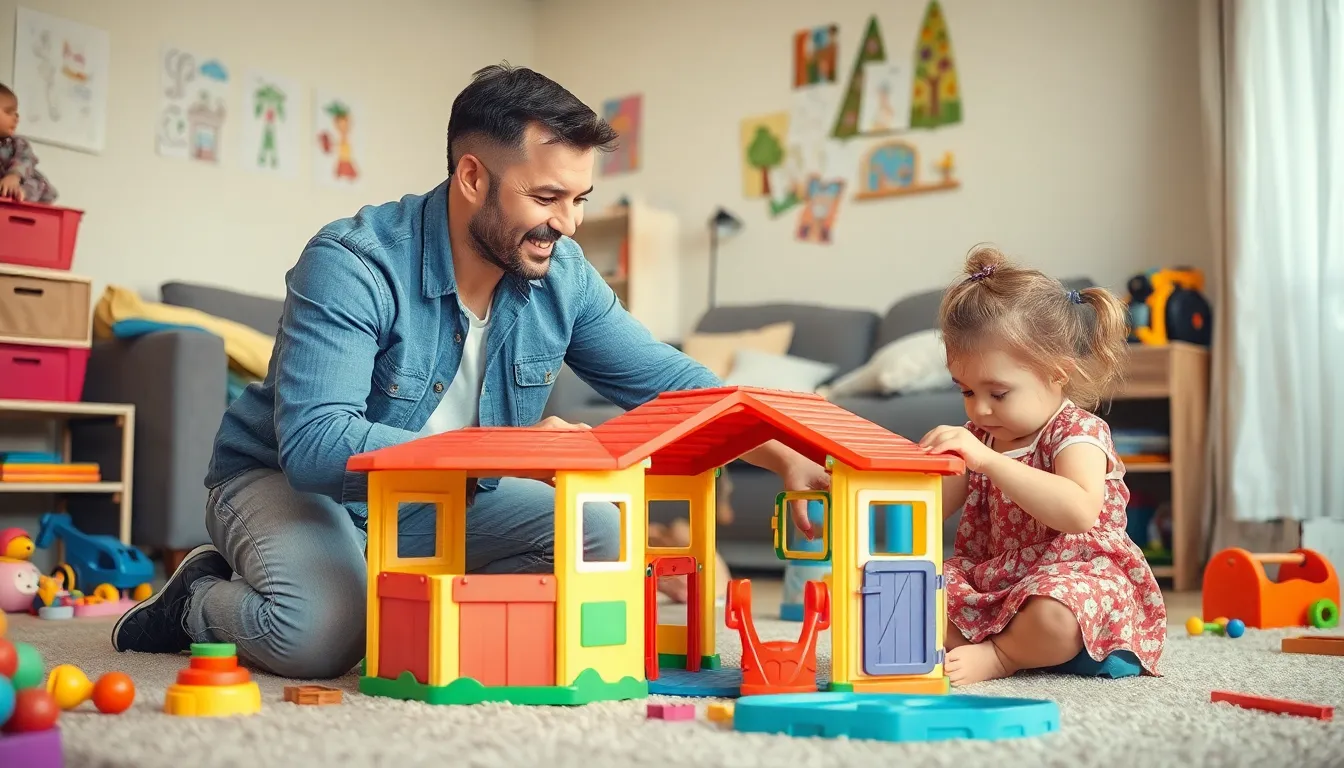Bullying can feel like a relentless storm, especially for kids navigating the choppy waters of school life. For single parents, it’s a double whammy. Juggling work, household duties, and parenting is tough enough without the added stress of their child facing bullies. It’s like trying to win a three-legged race while carrying a watermelon—challenging and messy!
But fear not! This article dives into the world of bullying through the lens of single parenthood. It explores the unique challenges faced and offers practical strategies to help both parents and kids tackle this issue head-on. With a sprinkle of humor and a dash of insight, it’s time to turn the tide and empower families to stand strong against bullying. After all, every child deserves a safe and supportive environment to thrive in.
Table of Contents
ToggleUnderstanding Bullying
Bullying affects children across various environments, including schools, neighborhoods, and online platforms. Understanding bullying is crucial for single parents seeking to protect their children.
Definition of Bullying
Bullying involves repeated aggressive behavior intended to harm another individual. This harassment can take various forms, including physical, verbal, or social methods. Victims often experience emotional distress, leading to long-term psychological effects. Recognizing bullying early enables parents to intervene effectively. Support from adults plays a vital role in addressing the issue. Single parents must remain vigilant, fostering open communication to help their children express concerns about bullying.
Types of Bullying
Bullying manifests in different ways. Physical bullying involves actions like hitting or pushing, directly inflicting bodily harm. Verbal bullying includes name-calling, threats, and derogatory comments, targeting a victim’s self-esteem. Social bullying, often more subtle, aims to damage relationships or reputation by exclusion or spreading rumors. Cyberbullying has become prevalent, leveraging technology to harass or threaten individuals through social media, texts, or online forums. Recognizing these types aids single parents in identifying bullying behavior and implementing appropriate responses.
Impact of Bullying on Children
Bullying significantly affects children, leading to a range of issues. Victims often face emotional and academic setbacks.
Emotional Consequences
Feelings of loneliness frequently accompany bullying experiences. Victims may struggle with low self-esteem, leading to depression and anxiety. Children exposed to repeated aggression often suffer from trust issues, impacting future relationships. Increased stress levels can result in physical symptoms such as headaches or stomachaches. Building resilience can become challenging as ongoing bullying erodes confidence. Support from caregivers and community resources plays a vital role in helping children navigate these emotional challenges.
Academic Challenges
Bullying creates academic hurdles for many children. Frequent absences from school often stem from fear of encountering bullies. Concentration issues may arise as children become preoccupied with thoughts of bullying, impairing learning. Grades typically decline, reflecting the emotional distress endured by victims. Additionally, a lack of participation in classroom activities can further hinder educational development. Schools must implement effective anti-bullying programs to support affected students and improve their academic performance.
The Role of Single Parents
Single parents play a crucial role in addressing bullying issues their children face. They navigate numerous responsibilities while trying to ensure their kids feel safe and supported.
Unique Challenges Faced
Single parents encounter several unique challenges regarding bullying. They often juggle work commitments with parenting duties, leaving little time to monitor social interactions. Emotional strain also impacts their ability to address bullying situations effectively. Limited resources might hinder the availability of extracurricular activities or support groups, which can help children build friendships and confidence. Children may feel isolated without a parent’s active involvement in their social lives. Parents may worry about their child’s wellbeing, leading to heightened anxiety and stress.
Importance of Support Systems
Establishing strong support systems is essential for single parents and their children. Family members and friends can provide emotional backing, making it easier for parents to cope with challenges. Schools also play a vital role; fostering open communication with teachers and counselors can lead to better outcomes. Community organizations might offer resources and programs focused on anti-bullying initiatives. By creating a network of support, single parents empower themselves and their children to confront bullying effectively. Connecting with other single parents can provide practical advice and validation of their experiences.
Strategies for Single Parents
Single parents face unique challenges when addressing bullying. Implementing effective strategies can help create a supportive environment for their children.
Open Communication
Open communication fosters trust and can prevent misunderstandings. Parents should establish regular check-ins to discuss their child’s day. Encouraging children to share feelings about school and friendships facilitates dialogue. Asking specific questions about interactions with peers prompts thoughtful responses. Active listening demonstrates genuine concern for their well-being. Creating a safe space for sharing means children feel comfortable speaking up about bullying. Parents can reinforce this by modeling vulnerability. Sharing their experiences can strengthen the bond and build trust. Ultimately, consistent communication lays the groundwork for addressing bullying effectively.
Encouraging Resilience
Encouraging resilience helps children cope with bullying situations. Parents can emphasize positive self-talk as a powerful tool. Teaching children to recognize their strengths boosts confidence. Role-playing different scenarios allows kids to practice responses to bullies safely. Highlighting stories of resilience in others inspires children to overcome challenges. Setting realistic goals fosters a sense of accomplishment, enhancing self-esteem. Parents should celebrate achievements, no matter how small, to reinforce progress. Developing problem-solving skills equips children to handle difficult situations. Practicing mindfulness techniques creates emotional awareness and improves coping strategies. Resilience empowers children to navigate adversity successfully.
Resources for Single Parents
Single parents facing bullying challenges can access various resources that offer support and information tailored to their needs.
Support Groups
Support groups provide a critical network for single parents dealing with bullying issues. Many local and online organizations offer spaces for sharing experiences and advice. These groups foster community among parents, allowing them to connect with others who understand their struggles. Parents can find valuable resources through organizations like the National Parent Helpline and local chapters of the Parent-Teacher Association. Participating in discussions can promote emotional well-being and resilience. Sharing strategies strengthens the collective effort to tackle bullying.
Educational Resources
Numerous educational resources exist to equip single parents with knowledge about bullying. Websites like StopBullying.gov provide comprehensive guides about bullying prevention and intervention strategies. Parents can access informative articles and toolkits that outline signs of bullying and appropriate responses. Schools often have resources, including counseling services and anti-bullying programs that parents should utilize. Workshops focusing on resilience-building can also benefit both parents and children. Engaging with these materials empowers families to confront bullying with informed strategies and support.
Conclusion
Addressing bullying is crucial for the well-being of children raised by single parents. These parents face unique challenges but can create a supportive environment by utilizing available resources and fostering open communication. Empowering children with resilience and problem-solving skills equips them to handle bullying situations more effectively.
Building strong support systems is essential. By connecting with other parents and engaging with community resources, single parents can share experiences and strategies that make a difference. Together they can create a safer atmosphere for their children. Ultimately, it’s about ensuring that every child feels valued and secure, paving the way for a brighter future.







